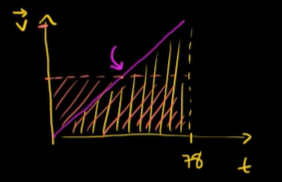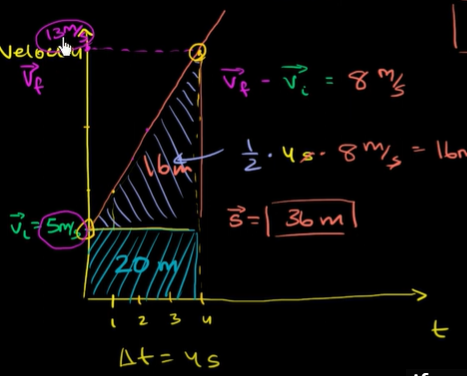Newton's Laws
1/7
There's no tags or description
Looks like no tags are added yet.
Name | Mastery | Learn | Test | Matching | Spaced |
|---|
No study sessions yet.
8 Terms
why can you take the average velocity for a constant acceleration?
because on a v vs t graph, for a constant acceleration, the line is straight, there is only one slope, if a horizontal line is drawn from the average velocity, the area under the line is the displacement

how is the formula x = t * (vf+vi)/2 derived?
by taking the area of a certain time for constant velocity and adding it to the area with the increase in velocity of constant acceleration

Newton’s first law
everything will stay at rest or move with constant velocity, unless it is compelled to change its state by force, acted on by an unbalanced force
Newton’s second law
acceleration is proportional to the net force applied to an object, and inversely proportional to the mass (F = ma)
why don’t the forces cancel out in Newton’s third law if they are equal and opposite to each other?
because both forces aren’t acting on the same object
how is something’s centre of mass determined?
by taking the average density of the object and figuring out its geometric centre

a) the force is not strong enough to affect the ruler
b) the ruler will accelerate by 1 m/s2
c) the ruler will rotate around the 33 cm mark
d) the ruler will rotate around the 67 cm mark
d) the ruler will rotate around the 67 cm mark

which of the following statements is true?
a) an object with no net force acting on it will have a constant velocity
b) an object with no net force acting on it will have a constant acceleration
c) an object with a net force acting on it will have a constantly changing speed
d) an object with a net force acting on it will have a constantly changing direction
a) an object with no net force acting on it will have a constant velocity